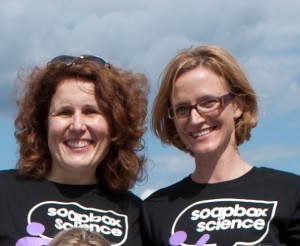Biosciences Seminar Series - Autumn 2014
20 November 2014 - 1pm - Zoology Museum (Wallace 129)
How natural enemies shape plant defences
Dr. Lindsay Turnbull
Ecology as a scientific discipline mainly focussed on plant ecology first. In fact one of the oldest and most prestigious journals, the Journal of Ecology, still only accepts papers on the ecology of plants! Hence, in our seminar series we should cover also plant ecology and this is the week - our speaker is Dr Lindsay Turnbull, member of the Plant Ecology Research Group and Associate Professor at the Department of Plant Sciences at Oxford University.
Lindsay is a plant ecologist, widely interested in what generates the large diversity we observe between plants and what consequences this has for the characteristics and dynamics of ecosystems. In her lecture she will focus on plant-herbivore interactions and the costs and benefits of plant defences.
Abstract
Plants are renowned for producing a wide variety of secondary compounds, many of which are associated with defences against herbivorous insects. However, there is wide variation in both the quantity and type of defence compounds produced.
Here I describe work on the model plant Arabidopsis thaliana, which demonstrates the costs of the production of plant secondary compounds called glucosinolates, which are known to be effective against herbivores. I also describe work demonstrating that different aphid species can select for different types of these glucosinolates in a controlled setting, which may explain the variation observed in different chemotypes of Arabidopsis across Europe.
Lindsay is a plant ecologist, widely interested in what generates the large diversity we observe between plants and what consequences this has for the characteristics and dynamics of ecosystems. In her lecture she will focus on plant-herbivore interactions and the costs and benefits of plant defences.
Abstract
Plants are renowned for producing a wide variety of secondary compounds, many of which are associated with defences against herbivorous insects. However, there is wide variation in both the quantity and type of defence compounds produced.
 |
| from: departments.agri.huji.ac.il |
Here I describe work on the model plant Arabidopsis thaliana, which demonstrates the costs of the production of plant secondary compounds called glucosinolates, which are known to be effective against herbivores. I also describe work demonstrating that different aphid species can select for different types of these glucosinolates in a controlled setting, which may explain the variation observed in different chemotypes of Arabidopsis across Europe.
Hope to see many of you - everyone most welcome to attend!
 |
| Image from www.plantphysiol.org |





